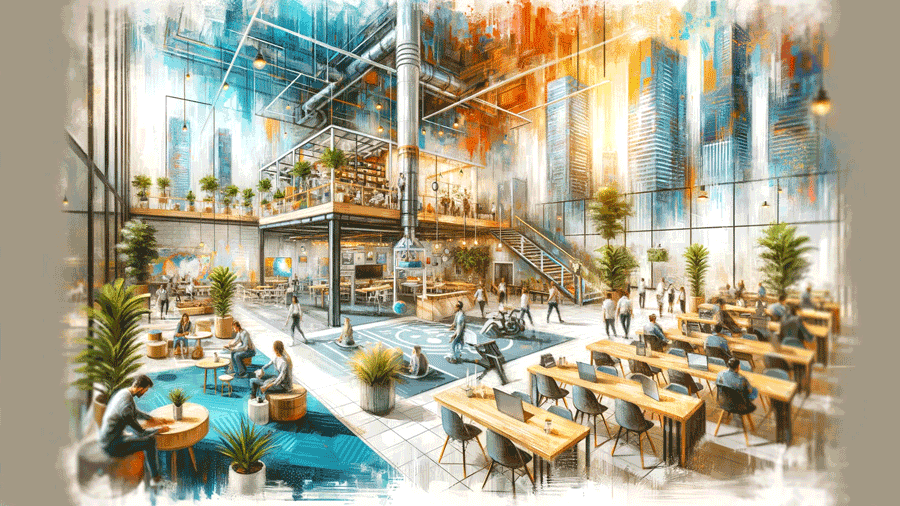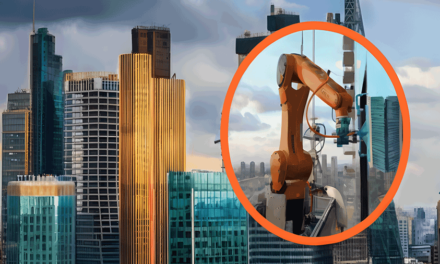A study conducted by FORA, a leading flexible workspace provider, has found that the youngest members of the workforce, specifically those aged 18-24, are spearheading a return to office environments, challenging prevailing beliefs about remote work preferences. This demographic, popularly known as Generation Z, spends an average of 3.35 days per week in the office, demonstrating a significant enthusiasm for the workplace that is reshaping how we think about the future of work.
The research highlights an intriguing aspect of today’s work culture: the critical role of workplace amenities, especially for younger professionals. For those in the 18-24 age group, the presence of quality amenities in the office is three times as important compared to their older counterparts aged 55-64 (37% vs. 12%). This trend is further emphasized by the fact that this younger demographic is thrice as likely to say that enhanced amenities would encourage them even more to spend time in the office.
Among the desired amenities, cafes, gyms, spas, yoga facilities, and pet-friendly environments rank high. A notable 47% of respondents expressed a strong preference for on-site gyms, while 34% favoured spa and wellness facilities. Additionally, over half (53%) of the young professionals prioritised having access to a cafe. This diversified set of preferences among young workers indicates a significant shift in workplace expectations and underlines the growing popularity of flexible workspaces. It appears that younger professionals are seeking work environments that not only cater to their professional needs but also prioritise their overall well-being.
In response to these evolving preferences, FORA, a pioneer in the flexible workspace industry, is making concerted efforts to meet these new demands. They offer a range of amenities, dynamic workspaces, advanced technology, personalised services, and prime locations with excellent transport links. These features are designed to cater to the modern professional’s needs, providing everything from top-notch fitness facilities to gourmet coffee bars and relaxation lounges. FORA aims to create an environment that not only boosts productivity but also enhances employee satisfaction.
Jennie Farmer, the Chief Marketing Officer at FORA, commented on the findings: “The recent poll results underscore the importance of creating an inspiring workspace and the value of an enriched office experience for the next generation of workers. Younger employees are embracing the office environment, but they expect more from it than just a place to work. At FORA, we are proud to provide a dynamic workspace that caters to these evolving preferences, helping businesses attract and retain top talent.”
Evolving Workforce Expectations and the Future of Office Spaces
As the workplace continues to evolve, the emphasis on amenities and the quality of the work environment has become increasingly prominent, particularly among the younger generation entering the workforce. This shift not only reflects the changing attitudes towards work-life balance but also highlights the need for businesses and workspace providers to adapt to these new expectations.
FORA’s approach to meeting these demands sets a precedent in the industry. By focusing on creating spaces that are more than just places to work, they are redefining the concept of an office. The integration of amenities such as gyms, cafes, and wellness facilities into the workplace is a response to the growing desire for a holistic work environment that supports both professional and personal growth.
This trend is indicative of a broader shift in workplace dynamics, where the physical office space is no longer just a location for work, but a hub for social interaction, personal development, and well-being. This evolution in the perception and use of office spaces is likely to continue, as the expectations of the workforce, particularly the younger generation, evolve further.
FORA’s initiative in this regard is not just about adapting to the present; it’s about shaping the future of workspaces. By acknowledging and catering to these new preferences, FORA is not only enhancing the work experience for today’s professionals but is also setting the stage for future workplace developments.
Implications for Businesses and Workspace Providers
The findings of FORA’s study have significant implications for businesses and workspace providers. As the demand for quality amenities and a more holistic work environment grows, companies will need to reconsider their office space strategies. This may involve redesigning existing spaces or choosing workspace providers like FORA that offer a range of amenities and a dynamic environment.
For workspace providers, this trend presents an opportunity to innovate and differentiate themselves in a competitive market. By offering a variety of amenities and focusing on creating a more engaging and satisfying work environment, they can attract a broader range of clients, particularly those looking to appeal to the younger workforce.
In conclusion, the study conducted by FORA sheds light on the changing dynamics of the workplace and the evolving preferences of the younger generation. It underscores the importance of rethinking office spaces, not just as places to work, but as environments that enhance the overall quality of work and life. As these trends continue to develop, they will shape the future of workspaces, influencing how businesses and workspace providers respond to the needs of a modern workforce.






